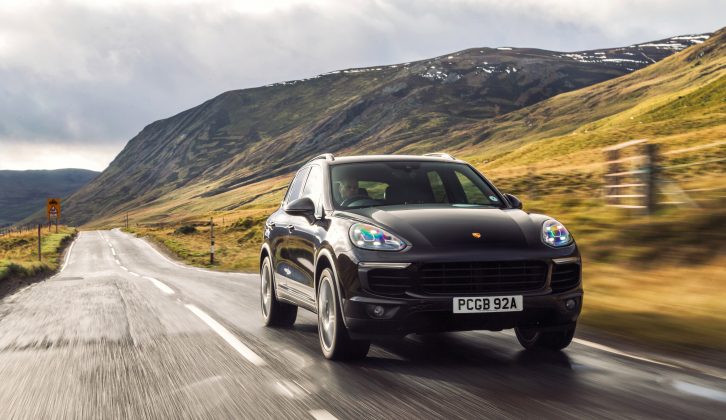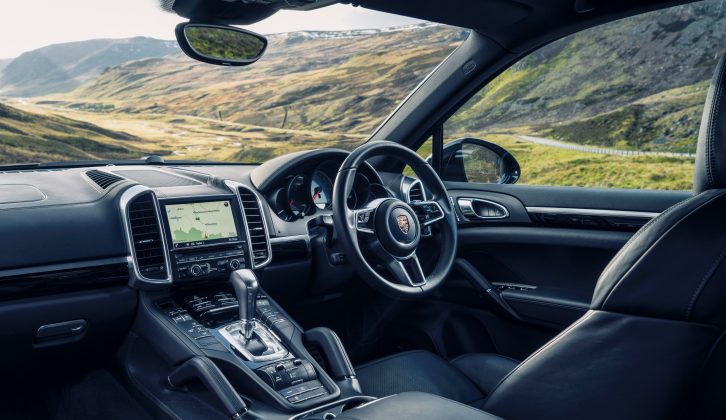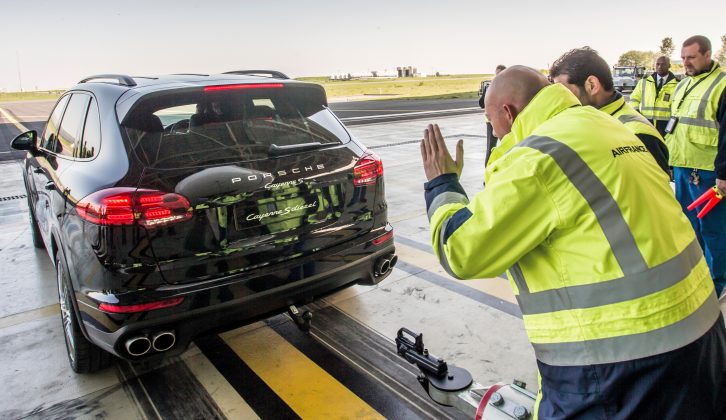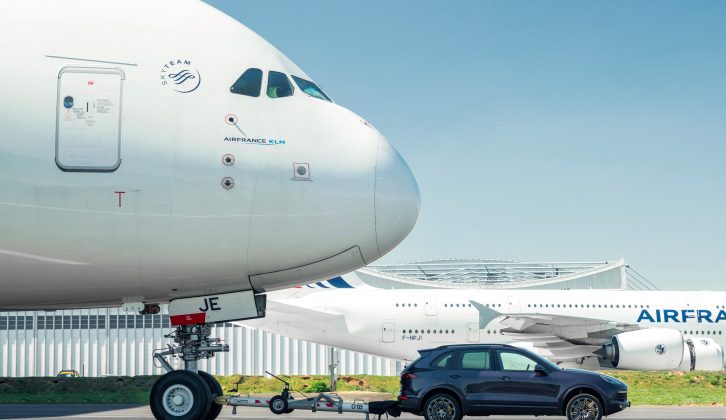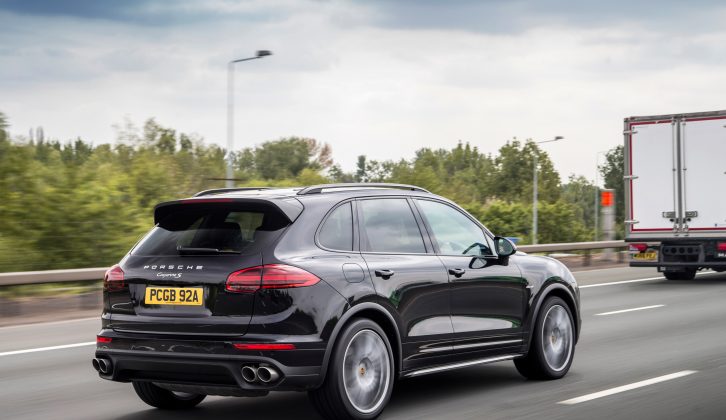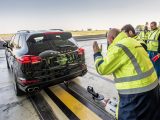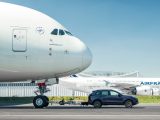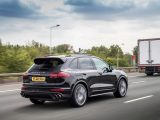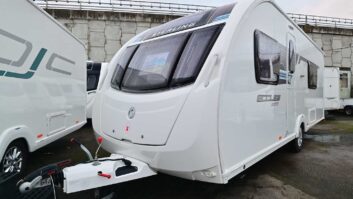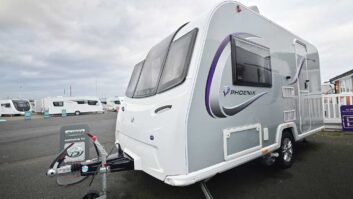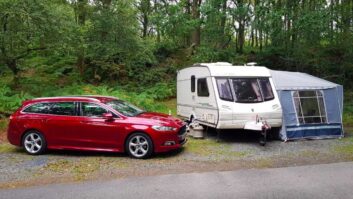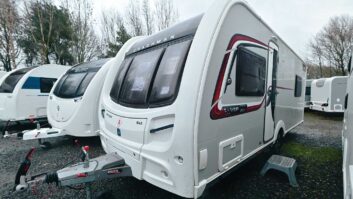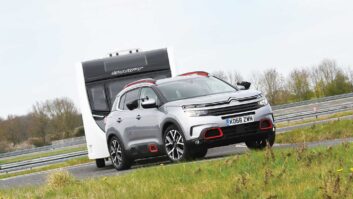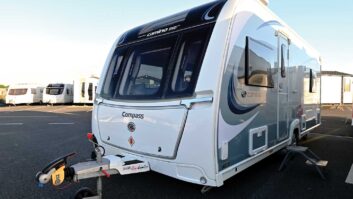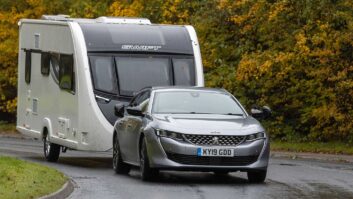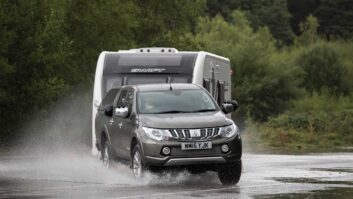“It’ll never work,” they said. “Even if it does, no one’ll buy it,” they said.
‘They’ were the traditionalists, historians and journalists who believed Porsche should stick to building the 911 and, at a push, the odd supercar such as the 959.
How glad we should be that Porsche ignored them, because if it hadn’t it wouldn’t be around now.
The success of the Cayenne
The Cayenne’s sales and profitability helped Porsche in times of need, and are what allows the firm to continue making cars such as the Cayman, the 911, the Panamera and the odd hypercar such as the 918 Spyder.
The second-generation Porsche Cayenne was launched in 2010, and sales have flourished.
It’s a car that deals with just about every situation, be that motorway cruising, inner-city shuffling or tow car duties.
It’s true that the Cayenne costs an arm and a leg to buy new, but those strong sales when new mean that there are now plenty of lightly used examples out there, and prices are such that you’ll be able to hang on to all of your limbs when buying one.
Model history
The first Cayenne was greeted with cynicism – but buyers loved it.
And Porsche reaped vast financial benefits from the motoring equivalent of Usain Bolt in a Barbour and wellies.
By the time of the second-generation car, the idea of a Porsche SUV was no longer considered out of the ordinary.
However, the Cayenne Mk2 faced rivals from manufacturers such as Audi, Mercedes-Benz and even Volvo.
In a marketplace where comfort and seven-seat practicality were important considerations, the sporty Cayenne could have seemed out of place.
Not a bit of it – it was offering something different. So what were buyers of the Mk2 getting?
Plenty of pulling potential
There were several petrol powerplants available, starting with the 296bhp, 3.6-litre V6 in the entry-level model.
Next up was the S, which boasted a 4.4-litre V8 producing 395bhp.
Some still deemed this a piffling amount, so step forward the Cayenne Turbo with its twin-turbo 4.8-litre V8 and 493bhp.
Porsche also introduced a hybrid drivetrain. This comprised a 47bhp electric motor and a supercharged 3.0-litre V6 petrol engine.
However, tow car drivers would be advised to steer clear of this one, because while on-paper stats are good, the reality is different.
Check out what tow car power the diesels have
Your life needn’t be one of visiting fuel stations, because Porsche also introduced a 3.0-litre V6 diesel engine.
Its 240bhp may be nothing to write home about, but the 406lb ft of torque should pique the interest of tow car drivers – it’ll also do a claimed average of 38.2mpg.
If that seems a bit puny, then there’s also the mighty 4.2-litre diesel S, which musters 380bhp and 627lb ft, yet still returns a sensible 35.3mpg.
All the engines drive through an eight-speed automatic gearbox, which changes gear quickly and smoothly.
Any model is a great tow car
Every Cayenne will cope with a heavy trailer, the variances when towing will be the soundtrack and the frequency of your fuel stops.
The entry-level petrol car will have to be worked harder than the rest, which will affect economy, while setting off briskly in the Turbo is likely to end up with all your possessions piled up in the rear of the van!
The diesels offer the best compromise of punch and frugality.
All Cayennes handle superbly, but avoid ones with huge alloys, because these make the ride too harsh.
Practicality is a weak point, because while there’s space for five people, the central tunnel means the middle rear passenger has to sit with their legs splayed.
The boot isn’t the biggest in its class, but is still a good size.
Trouble spots
The Porsche Cayenne Mk2 has no real weak spots.
Most issues appear to be gremlins affecting single vehicles rather than range-wide problems.
For example, there have been reports of a few cars generating errant warnings concerning the airbags, the PSM stability-control system and the anti-lock braking system.
Other issues have concerned rear lamp covers, which have corroded.
The Cayenne has also been subject to four recalls. The first concerned the headlamp units, which could become detached.
The Turbo was recalled to have a substandard turbocharger replaced, then the petrol-powered Cayenne was recalled because of a faulty fuel rail.
The last recall involved all Cayennes, and was for a fault with the brake pedal.
Buyers should ensure that any recall work has been carried out by the manufacturer.
Verdict
The Porsche Cayenne Mk2 has sold well because of what it does and what it represents.
It is a great car to drive, both when hitched up to a caravan and solo, and if you choose a diesel model it shouldn’t be vastly expensive to run.
It also has a beautifully built and stylish interior, and good space.
No other rival has the cachet of a Porsche badge – you have most definitely ‘arrived’. No wonder sales continue to soar.
The model we would go for is the 3.0-litre V6 diesel, because this strong engine will see you sailing past many fuel stations with barely a care in the world.
When hitched up, on-road stability is assured.
However, we’d probably avoid the Cayenne Turbo – it has almost too much power and torque for towing.
Acceleration is super-quick, however fuel, brakes and tyres will cost a fortune.
What you need to know
Today you will pay anywhere between around £23,000 and an eye-popping £110,000 for a Mk2 Cayenne.
In other words, prices have now come down to the level where you can choose between, say, a fairly high-spec Seat Leon or a used Porsche Cayenne.
The difference is that the Seat will have around 10 miles on the clock and the Porsche around 100,000.
Up the budget to £30,000 and you’ll be in line for a 2012 car with plenty of options and around 50,000 miles on the odometer.
Stick another £10k on the budget and you’ll be into the realms of Porsche Approved examples that have a mileage starting with a three.
Here are some useful figures (for 2014 Porsche Cayenne Diesel V6):
- Kerbweight 2330kg
- Towing limit 3550kg
- Nose weight limit 95kg
- 85% match 1900kg
You’ll need to fit a towball, so we’ve asked PF Jones for some prices. We were quoted £236.52 to fit a Westfalia swan-neck towbar and £237.00 for a Westfalia detachable towbar.
And in terms of servicing costs, you’re looking at £213.48 for an interim service and £362.91 for a full service, according to Servicing Stop (for a Cayenne diesel).
Prices have come down to the level where you can choose between a fairly high-spec Seat Leon or a used Porsche Cayenne
